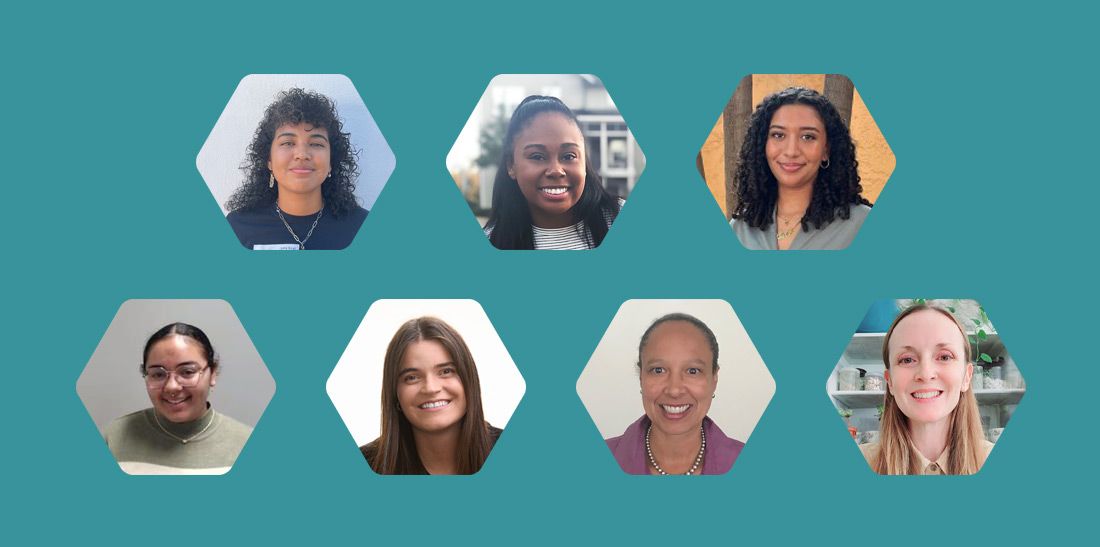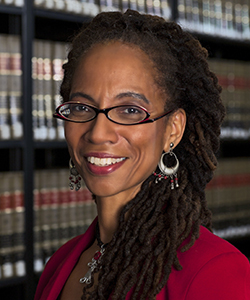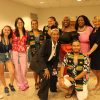Seven new students joined the St. Petersburg Truth, Racial Healing and Transformation Center this fall as its third cohort of Racial Justice Fellows.
St. Pete TRHT’s new fellows attend Eckerd College, Stetson University College of Law and the University of South Florida St. Petersburg. Each was selected after submitting an application to participate in opportunities to learn about shaping policy and systems through a racial justice lens.
The 2023–2024 fellows are: Yasmine Blakely, a third-year law student at Stetson Law; Sommer D. Brokaw, a second-year law student at Stetson Law; Annemarie “Willow” Elguera, a junior psychology student at USF St. Petersburg; Katherine Kirkeminde-Harris, a senior anthropology student at USF St. Petersburg; Celeste “Nana” Paultre, a junior human development and sociology student at Eckerd; Monica Saad, a second-year law student at Stetson Law; and Kiley Woods, a junior creative writing and history student at Eckerd.
Fellows learn about mechanisms that enable racial healing, and work on projects that support racial healing and transformation in local communities. The program—bolstered by a $2,000 stipend for each student—requires up to 60 hours of time per semester and up to 120 hours for a part-time six-week summer internship.
The St. Petersburg Truth, Racial Healing and Transformation Center—formerly known as the St. Petersburg/Pinellas Higher Education for Racial Equity (SPHERE)—is an officially recognized Truth, Racial Healing and Transformation campus center of the American Association of Colleges and Universities. This collaboration of two institutions in Pinellas County, Florida, is unified in the cause to upend established racial hierarchies that oppress marginalized communities. Representatives from Eckerd College and Stetson University College of Law work together with community partners to create academic programming, research, information resources and public engagement around racial equity.
St. Pete TRHT co-chair Stetson Professor of Law Judith Scully, J.D.—who recently received the Elizabeth Hurlock Beckman Award for mentorship—says she has already noticed the cohort of fellows—which is all female—engaging and forming a community.
“The new fellows are really excited about having a space to talk about racial inequities because they are not often getting that opportunity in their classes,” Scully says. “It’s also helping them feel more comfortable and confident in who they are and what they are doing. They love being in community with each other and being able to do whatever they can to make the TRHT not just a campuswide effort but a citywide endeavor.”
Because the fellows come to the program in varying stages of their lives and academic careers, their reasons for persisting also vary widely. “It is vital to acknowledge intersectionality in all aspects of social justice work—including race, gender, sexuality, ability, class and more,” says fellow Annemarie Elguera.
“I do not expect the work to be easy, but in hopes of a better future, it’s essential to acknowledge the origins of racial injustice and listen to the voices most affected by it.”
Trigger events in their lives pushed the students to apply to become a part of the organization, which annually produces interns for agencies, government and community organizations focused on justice issues—from the Department of Veterans Affairs to the St. Pete Youth Farm.
“During my freshman year of undergrad, a sociology course on race, gender and class inequality exposed me to the role the law plays in both discrimination and reformation,” says fellow Monica Saad. “Fueling my passion for social change, I entered the legal field in hopes of advocating for oppressed communities and marginalized voices.”
Each fellow acknowledges the importance of the work to create equity and demonstrates a thirst for knowledge.
“Racial justice action is important to me because I have seen and experienced other forms of injustice and believe in the power of creativity to promote change,” says fellow Kiley Woods.
Justice was the theme of Sommer D. Brokaw’s career in journalism at The Charlotte Post and The Triangle Tribune before she decided to pivot to becoming a law student and Racial Justice Fellow.
“After witnessing the COVID-19 pandemic disproportionately impacting the Black community due to disparities, [my career in journalism] was no longer enough,” Brokaw says. “I wanted to become a legal advocate for racial justice.”
Fellow Celeste Paultre explains the cohort’s overall driver best. “No one should ever have to feel alone or different because of the color of their skin or the shape of their nose, and I believe that by making connections in the community and starting conversations, we can begin to heal together and actualize our aspirations for future generations,” she says.










